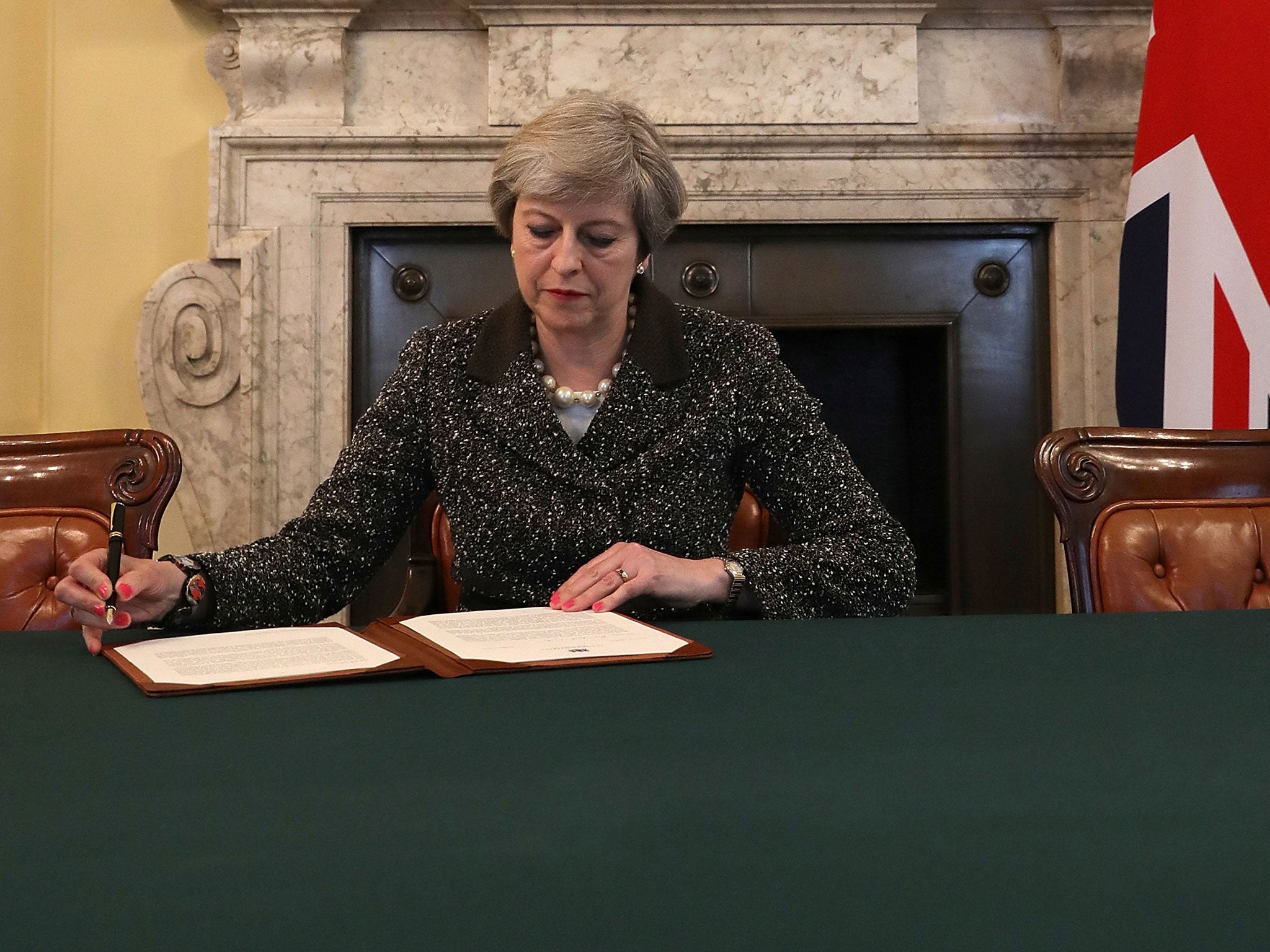Brexit: Theresa May's plan could drag Government to Supreme Court, top judge warns
Lord Neuberger says any attempt to scrap regulations like the Working Time Directive could be subject to legal challenges if they are not individually approved by Parliament

Your support helps us to tell the story
From reproductive rights to climate change to Big Tech, The Independent is on the ground when the story is developing. Whether it's investigating the financials of Elon Musk's pro-Trump PAC or producing our latest documentary, 'The A Word', which shines a light on the American women fighting for reproductive rights, we know how important it is to parse out the facts from the messaging.
At such a critical moment in US history, we need reporters on the ground. Your donation allows us to keep sending journalists to speak to both sides of the story.
The Independent is trusted by Americans across the entire political spectrum. And unlike many other quality news outlets, we choose not to lock Americans out of our reporting and analysis with paywalls. We believe quality journalism should be available to everyone, paid for by those who can afford it.
Your support makes all the difference.Britain's most senior judge has warned that Theresa May’s proposed “Henry VIII” clauses in the Great Repeal Bill could end up with the Government being dragged through the courts.
Lord David Neuberger, said a clause in the bill which would allow the Government to amend existing laws without consulting Parliament, could cause legal problems down the line.
The Great Repeal Bill will convert EU law into UK law before Brexit is completed in 2019, and before the Government proposes which bits should be retained or scrapped.
But there are fears that the prime minister could use ancient “Henry VIII powers” which would allow ministers to change laws without a vote by MPs, using “secondary legislation”.
Lord Neuberger, the President of the Supreme Court, warned that this raised the "possibility of increased litigation".
He told the House of Lords Constitutional Committee: "Much of the legislation will be in the form of statutory instruments and secondary legislation. The difference between statute or EU law and secondary legislation is of course that secondary legislation— statutory instruments—can be reviewed by the courts.
"There must therefore be a possibility of increased litigation relating to statutory instruments and the law as contained in secondary legislation."
Statutory instruments are a form of delegated legislation which allow national or devolved governments to update regulations in specific areas. The Welsh Assembly recently used them to change local speed limits.

Successive governments have however, been criticised for their use of the mechanism, which was originally introduced after the Second World War, primarily legislate on local matters.
The most draconian of these powers – allowing laws to be amended or repealed – have been dubbed “Henry VIII powers” because they date back to a 1539 law allowing the Tudor monarch to govern by proclamation.
However, the Government has defended itself against the claims of a power grab.
A Whitehall source told The Sunday Telegraph: “The Government is clear that such a power will be time-limited, to apply before the UK leaves the EU and for a limited period afterwards”.
Lord Neuberger said his own hunch would be that "there won’t be a great deal of extra litigation because of that, at least initially, because the secondary legislation will basically contain current EU law and I think it’s hard to think it could be challenged on classic judicial review grounds."
But he said that "as the Government changes the law over the next ten or twenty years – however long it takes – if that’s done by secondary legislation then there is the possibility of increased litigation.”
He also raised the issue of whether the Supreme Court would be able to cope with the “temporary bulge” of work which will pass its desk but said it probably could and said other judges could be called in to help if necessary.
The Great Reform Bill, which was unveiled by Brexit Secretary David Davis in the House of Commons on Thursday, is the first piece of legislation to be introduce to Parliament since Ms May formally triggered Article 50 earlier this week.
Ms May has already faced numerous legal hurdles on the way to triggering the mechanism which will begin the formal exit negotiation.
In January, the Supreme Court ruled in favour of a legal challenge brought by Gina Miller and Deir Dos Santos which meant the Government were forced to get parliamentary approval before triggering Article 50.
The measure was then temporarily blocked by the House of Lords, where the Government does not hold a majority, because they wanted to guarantee the rights of EU citizens already living in the UK.
Join our commenting forum
Join thought-provoking conversations, follow other Independent readers and see their replies
Comments